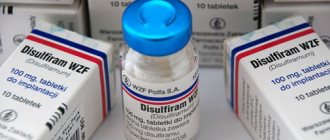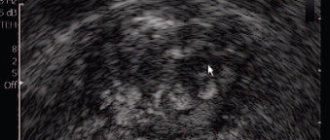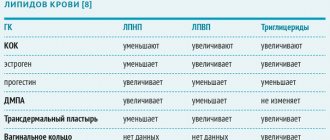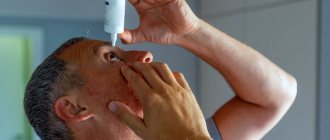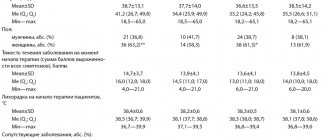Composition and release form
Prolit®
| Pills 225 mg | 1 pill (225 mg) |
| kidney tea leaf extracts (Orthosiphonis Folium) - 27.038 mg; leaves of thistle (Sonchi Folium) - 27.038 mg; curly silkworm leaves (Sericocalycis Folium) - 24.58 mg; phyllanthus niruri herbs (Phyllanthi Herba) - 24.58 mg; rhizomes of cylindrical imperata (Imperatae Rhizoma) - 12.29; cubebae pepper fruit (Cubebae Fructus) - 3.687 mg; papaya leaves (melon tree) (Caricae Folium) - 3.687 mg | |
| excipients: glucose - 98.32 mg, turmeric - 3.465 mg, sodium bicarbonate - 0.275 mg, methylparaben - 0.04 mg |
in bottles of 100 pcs.; 1 bottle in a cardboard pack.
Prolit® super capsules
| Capsules 600 mg | 1 caps. (600 mg) |
| leaf extracts of curly silkworm (Strobilanthi Folium) - 80 mg; kidney tea leaves (Orthosiphonis Folium) - 6 mg; real ginseng roots (Radix Ginseng) - 5 mg; sea horse - 5 mg; rhizomes of cylindrical imperata (Imperatae Rhizoma) - 2 mg; licorice roots (Glycyrrhizae radix) – 2 mg | |
| excipients: starch - 500 mg |
in bottles of 60 pcs.; 1 bottle in a cardboard pack.
Component Properties
Prolit® (pills No. 100)
Curly silkworm dissolves stones of various compositions, has a diuretic, hypoglycemic and laxative effect. Kidney tea (cat's whisker) has pronounced diuretic properties. The diuretic effect is accompanied by increased release of urea, uric acid and chlorides from the body. Increases glomerular filtration, improves tubular function. It is used for acute and chronic kidney diseases, accompanied by edema, albuminuria, azotemia and the formation of kidney stones; for cystitis, urethritis, gout, diabetes; for cholecystitis, cholelithiasis, heart diseases accompanied by edema. Effective during long-term use for kidney diseases. Does not cause side effects.
Phyllanthus niruri has a strong antimicrobial and diuretic effect, helping to loosen kidney stones. Sow thistle has a diuretic, choleretic, anti-inflammatory and mild laxative effect; used for bladder diseases. The fruits of cubeba pepper have a pronounced antiseptic effect that disinfects the genitourinary tract; used for the prevention and treatment of sexually transmitted diseases. The leaves and peel of green papaya fruits contain a complex of enzymes, including papain, which perfectly helps with disorders of gastrointestinal secretion, especially when it is difficult to digest proteins. These substances normalize the functioning of the hepatobiliary system, due to which stones in the liver and gall bladder dissolve.
Prolit® super capsules (capsules No. 60)
Curly silkworm dissolves stones of various compositions, has a diuretic, hypoglycemic and laxative effect. Kidney tea (cat's whisker) has pronounced diuretic properties. The diuretic effect is accompanied by increased release of urea, uric acid and chlorides from the body. Increases glomerular filtration, improves tubular function. It is used for acute and chronic kidney diseases, accompanied by edema, albuminuria, azotemia and the formation of kidney stones; for cystitis, urethritis, gout, diabetes; for cholecystitis, cholelithiasis, heart diseases accompanied by edema. Effective during long-term use for kidney diseases. Does not cause side effects. Ginseng is widely used as a tonic and general strengthening agent that helps improve mental and physical performance. The seahorse is considered in traditional medicine to be a valuable tonic and aphrodisiac. Licorice is naked. Used as an anti-inflammatory, antispasmodic, expectorant, antiallergic agent. Imperata cylindrical has diuretic and antifever properties. Used as a diuretic for inflammatory diseases of the bladder and urethra, chronic hepatitis, renal and cardiac edema.
The role of the herbal medicine “Prolit” in the treatment of patients with urolithiasis.
17.09.2013
7549
0
Dzeranov N.K., Konstantinova O.V., Beshliev D.A., Konkova T.A.
Research Institute of Urology of the Ministry of Health of the Russian Federation and the Slovak Republic, director - Academician of the Russian Academy of Medical Sciences N.A. Lopatkin
Introduction.
The problem of conservative treatment of urolithiasis remains relevant, despite the introduction and improvement of minimally invasive methods for removing urinary stones.
The technology of treatment using extracorporeal lithotripsy (ESLT), which has firmly entered into clinical practice as a method of choice in the treatment of patients with kidney and ureteral stones, includes creating conditions for the fastest possible spontaneous passage of fragments of destroyed stones through the urinary tract in order to prevent various obstructive and inflammatory diseases. complications. The treatment tactics for patients when there is a violation of the outflow of urine due to the presence of a stone or its fragments in the ureter, which tend to pass on their own, depends on the anatomical and functional state of the upper urinary tract, the level of localization of the stone and its chemical composition.
That is why the role of conservative methods of expelling stones from the upper urinary tract, including medications, including herbal medicine, has increased significantly, since their use in the postoperative period of DLT is especially valuable due to their non-invasiveness, virtual absence of complications and considerable effectiveness: improvement of the functional state of the kidneys, impact on the inflammatory process in the upper urinary tract, strengthening the contractile function of the smooth muscles of the ureter and normalizing the passage of urine through them. All this contributes to the spontaneous passage of stones or their fragments from the collecting system and ureters, which is especially important in the pre- and postoperative periods of extracorporeal lithotripsy
Conservative therapy, based on analgesic, antispasmodic, diuretic effects and medicinal dissolution of (urate, urate-oxalate) urinary stones, increases the effectiveness of treatment of patients with nephrolithiasis, especially after a DLT session.
Antispasmodic and diuretic drugs that accelerate the passage of stones from the urinary tract include: baralgin, no-shpa, dry madder extract or marelin, rovatinex, phytolit, cystenal, urolesan, uroflux, enatin, olemitin, phytolysin, nieron, cystone, lasix , furosemide, nonspecific anti-inflammatory drugs (indomethacin, diclofen, pyroxine), etc.
To dissolve urate and urate-oxalate urinary stones, citrate mixtures (uralite y, blemarene) are used in combination with allopurinol and its analogues (milurit, cyloric), etc.
In addition, for many patients, the passage of a stone or its fragments from the upper urinary tract does not mean complete recovery from urolithiasis. Therefore, in order to reduce the recurrence of stone formation, appropriate secondary prevention is indicated: timely elimination of the causes contributing to urine stasis in the urinary tract; targeted treatment of infections of the urinary tract and other organs (teeth, tonsils, fallopian tubes, etc.); regulation of urine pH depending on the composition of urinary stones; physical education (active movements, breathing exercises with active involvement of the muscles of the anterior abdominal wall, walking, hiking, running, jumping, morning hygienic exercises, etc.), especially by persons associated with a long monotonous body position during work or leading a sedentary lifestyle ; in order to dilute urine, reduce its relative density to 1008-1012 and prevent the precipitation of urinary salt crystals, fractional ingestion of a large amount of liquid (vegetable, fruit juices, boiled water, green tea, etc.) - at least 1.5–2 liters per day; eating food rich in vitamins, but with a moderate content of table salt. In addition, for uric acid stones, it is advisable to limit foods rich in purines (liver, kidneys, brains, strong meat broths, jellied meat, etc.), for phosphate stones - dairy and vegetable, flour and fish dishes, and for stones with a predominance of calcium oxalate - milk, plant foods, strong coffee, black tea, etc.
It should be noted that conservative therapy for urolithiasis should be comprehensive, combining various physical factors (physiotherapy, laser therapy, balneotherapy), physical therapy with medications, including herbal ones, so the effect of its components (analgesic, antispasmodic, diuretic effects) are mutually enhanced ., since the technology for its implementation involves creating conditions for spontaneous passage of fragments of destroyed stone through the urinary tract. In this regard, scientific research aimed at studying the effects of drugs and non-drugs on the metabolism of stone-forming substances and spontaneous passage of urinary stones should be continued [6, 7, 8, 9, 10].
Along with previously widely used drugs for the treatment of urolithiasis, new drugs have appeared in recent years, including biologically active food additives (BAA) (canephron, gejileling, keji billing, prolit, etc.). They are widely advertised in the media, calling for their use in medical practice, although the appropriateness and effectiveness of their use raises debate among practicing physicians [1, 3, 5].
One of these drugs is the biologically active additive “Prolit”. This dietary supplement belongs to herbal preparations, consisting of extracts of leaves of curly silkworm, sow thistle, kidney tea herb, phylanthus niruri, rhizomes of imperata cylindrical, papaya, cubeba pepper fruits, recommended as a stone-expelling, stone-dissolving and anti-inflammatory agent for patients with urolithiasis. At the same time, there is data on the use of this drug for the prevention of stone formation [2].
Target.
The purpose of this work was to determine the feasibility and indications for prescribing this biologically active food supplement “Prolit” to patients with nephrolithiasis.
Materials and methods.
The work was carried out on a group of 30 patients, consisting of 7 women and 23 men aged from 23 to 70 years. At the start of the study, urinary stones were absent in 4 patients (the stones passed on their own or were removed surgically), in 7 patients stones were detected in one kidney, in 2 patients - in the ureter. Bilateral kidney stones were diagnosed in 16 patients. The size of the stones varied from 0.4 to 2.2 cm. A staghorn stone was identified in 1 patient. The duration of the disease varied from 1 to 29 years.
To determine the effectiveness and safety of using the Prolit dietary supplement, patients underwent a comprehensive examination, including: ultrasound examination of the kidneys, x-ray examination, as well as biochemical methods for examining blood and urine for 14 biochemical indicators, reflecting the functional state of the kidneys and the state of metabolism of stone-forming substances. Clinical urine analysis was performed according to standard methods. Biochemical examination of blood and daily urine was carried out using chemical reagents and an automatic analyzer “Labsystem”.
According to the examination conducted before the prescription of dietary supplements, the functional state of the kidneys was within normal limits. According to a general urine analysis, in 27 (90%) patients there was no exacerbation of the inflammatory process in the urinary system, in 3 (10%) patients an active stage of chronic pyelonephritis was detected. Control examinations were carried out 1 to 3 times with an interval of 1-2 months.
"Prolit" was prescribed 1125 mg (5 pills) 3 times a day. The course of treatment ranged from 1 to 6 months.
To analyze the obtained data, Student's T-test was used [4].
Results and its discussion.
The effectiveness of the drug was assessed according to two criteria: metabolic and clinical. Metabolic assessment included determining the nature of changes in biochemical parameters of blood and urine at various times after the start of taking dietary supplements. Clinical effectiveness was assessed according to three parameters: the degree of impact on the inflammatory process of the upper urinary tract; effectiveness of preventing stone formation recurrence; preventing the growth and elimination of existing stones.
According to the control examination, it was established that the Prolit dietary supplement does not impair the functional state of the kidneys. In addition, there was no effect of dietary supplements on the serum concentrations of potassium, sodium and total calcium. At the same time, under the influence of "Prolit" there was a statistically significant decrease in the level of hypercalciuria from 9.23+0.78 to 5.73+0.44 mmol/day in 100% of observations, as well as a decrease in urine pH from 6.04+0 .07 to 5.79+0.12 in 75% of cases. There was also a tendency towards a decrease in the increased concentration of uric acid in the blood serum and the content of oxalates and uric acid in the urine. Table No. 1
To assess the severity of the inflammatory process in the urinary system, in addition to clinical methods, laboratory methods are also used, using indicators of the degree of bacteriuria and leukocyturia. In the presented work, based on the analysis of examination data of 30 patients with urolithiasis in order to determine the state of the inflammatory process in the urinary system, remission was diagnosed in 27 (90%) patients before the appointment of Prolit. General urine tests revealed leukocyturia up to 6 leukocytes per field of view. There was no bacteriuria. In 3 (10%) patients, an active phase of the inflammatory process in the urinary system was noted: in one patient a high degree of leukocyturia was diagnosed, in 2 patients - up to 20 leukocytes in the p/z. Microbiological analysis of urine revealed Ps.aeruginosa in 1 patient and Enterobacter in one patient. When analyzing the examination data of patients before and after treatment with the Prolit dietary supplement in a homogeneous sample, it was revealed that after treatment, during a control examination, in 75.0% of cases, the degree of leukocyturia decreased to 1-3 leukocytes per p/z., in 6.3 % of observations noted leukocyturia up to 6-8 leukocytes in the field of view, in 18.7% of cases the level of leukocyturia increased from 2-6 leukocytes in the field of view to 7-21 leukocytes in the field of view, it is possible that in 2 patients this was a consequence of exacerbation of pyelonephritis after DLT. In a patient with a coral stone, after taking the drug, a high degree of leukocyturia was detected and Enterobacter was detected in the urine; bacteriuria also persisted in the patient with Ps. aeruginosa.
To determine the effect of the Prolit dietary supplement on the process of recurrent stone formation in patients with urolithiasis, a group of patients consisting of 12 people was examined. At the time of prescription of the dietary supplement, 4 patients had no stones in the urinary system, 8 patients had stones in one kidney. When examining patients at the end of treatment, it was found that out of 4 patients without urinary stones at the start of the treatment course, stone recurrence was found in 1 patient. Of the 8 patients with unilateral renal stones, 1 had a small stone in the contralateral kidney. Analysis of the results obtained indicates that, most likely, the microlith of the left kidney is falsely recurrent, since the appointment of the microlith was preceded by external shock wave lithotripsy of a stone in / 3 of the left ureter and it is possible that small fragments, not always determined by ultrasound of the kidneys and radiography of the urinary tract systems migrated to the kidney. This patient had multiple recurrences of kidney stones over a period of 5 years. Table No. 2
When analyzing the effectiveness of the dietary supplement "Prolit" for the passage of stone fragments, it was found that while taking this drug for 1-4 months, complete passage of the stone path occurred in the 2nd patient after DLT and microlith from the lower third of the ureter in the 2nd patient. In patients with localized fragments of kidney stones in 18 (90%) cases, the size of the stones remained unchanged, of which in 8 (44.4%) patients the stones passed in the first 2 months. In 2 cases (10%), a slight increase in the size of the stones was noted, which may be due to the error of ultrasound examination. Based on the anamnesis and clinical examination of the above 2 patients, it was revealed that recurrent urolithiasis occurred, and the patients were chronic stone excretors for 23-29 years. Table No. 3
In previous studies, the purpose of which was to determine the presence of a diuretic effect and the influence of the drug "Prolit" on the passage of ureteral stones up to 0.5 cm in size, the effectiveness of Prolit for their more successful and painless passage was proven. The treatment results were studied in 2 equal groups of 30 patients. There were 17 men and 13 women in the main group, and 14 men and 16 women in the control group. Patients in the control group received the usual stone-expelling therapy accepted in the clinic.
In the main group of patients, traditional therapy was replaced by the administration of the drug "Prolit". The effectiveness of treatment was assessed 2 weeks after the start of treatment according to the following criteria: the absence of stone fragments in the kidneys and upper urinary tract, the severity of pain symptoms during the migration of fragments, and tolerability of the drug.
In 28 patients in the control group, as a result of the treatment, complete passage of the “stone paths” and ureteral stones was noted, and only in 2 cases (one each with stones in the middle third of the ureter and the lower third of the ureter) contact ureterolithotripsy and ureterolithoextraction were additionally performed with a positive effect. At the same time, the passage of stones and “stone paths” in the control group occurred on average after 9,462.19 days.
In all 30 patients of the main group, as a result of the treatment, complete passage of the “stone paths” and ureteral stones was observed on average after 7,61,74 days.
During the entire study period, no side effects of the biologically active food additive were detected.
Conclusion.
- The use of the drug "Prolit", which has a diuretic effect, is recommended for patients after DLT to accelerate the process of passage of fragments of destroyed stones from the upper urinary tract and small stones of the kidney and ureter (up to 0.5 cm).
- The dietary supplement "Prolit" has an effect on the metabolic state of patients with urolithiasis, which is manifested by a decrease in hypercalciuria and urine pH, a tendency to reduce elevated concentrations of uric acid in the blood serum, and levels of uric acid and oxalates in the urine. When using the drug "prolit" for 1-4 months in patients with urolithiasis, the absence of an increase in the size of stones was 90%.
- The drug Prolit does not have a litholytic effect on urinary stones and can be part of a complex, conservative treatment of urolithiasis, taking into account established metabolic disorders, and not be considered as an independent drug.
Tables for the article
Dzeranova N.K., Konstantinova O.V., Beshlieva D.A., Konkova T.A.
The role of the herbal medicine “Prolit” in the treatment of patients with urolithiasis.
Table 1.
The effect of dietary supplement "Prolit" on the metabolic status of patients with urolithiasis.
| Biochemical indicator of blood (mmol/l) urine (mmol/day) | Average value | Significance of differences (p<0.05) | |
| before treatment | after treatment | ||
| 1. Diuresis | 1879±414 | 1847±389 | No |
| 2. Blood creatinine | 0,072±0,015 | 0,085±0,019 | No |
| 3. Blood urea | 5.70±0,34 | 5,43±0,41 | No |
| 4. Creatinine clearance ml/min | 95,9±3,6 | 94,5±3,2 | No |
| 5. Blood potassium | 4,68±0,27 | 4,59±0,19 | No |
| 6. Blood sodium | 144,8±3,3 | 144,2±2,7 | No |
| 7. Blood calcium | 2,38±0,12 | 2,40±0,09 | No |
| 8. Blood uric acid | 0,452±0,088 | 0,370±0,096 | trend towards↓ |
| 9. Urine oxalates mg/kg*day | 0,53+0,09 | 0,46±0,08 | trend towards↓ |
| 10. Uric acid urine | 4,67±1.39 | 3,59±1,09 | trend towards↓ |
| 11. Inorganic phosphates in urine | 25.7±8,3 | 27,5±5,7 | No |
| 12. Total urine calcium | 9,23±0,78 | 5,73±0,44 | Decrease (↓) |
| 13. Specific gravity of urine | 1022±6 | 1021±8 | No |
| 14. Urine pH | 6,04+0,07 | 5,79 +0,12 | Decrease (↓) |
Table 2.
The effect of the dietary supplement "Prolit" on the recurrence of urinary stones.
| Before treatment | Duration of Treatment (month) | After treatment | ||
| No stones | There are stones | No relapse | There is a relapse. | |
| 4 | 2,5 — 6 | 3 (75%) | 1 (25%) | |
| 8 | 2 – 6 | 7 (87,5%) | 1 (12,5%) | |
Table 3.
The effect of dietary supplement "Prolit" on the size and location of stones in patients with urolithiasis.
| Before treatment | After treatment | |||
| Localization | Qty | The stones came out | Without changes | Increase in height |
| Bud | 20 | 3 (15%) | 13 (65%) | 4 (20%) |
| Ureter | 2 | 2 (100%) | — | — |
Bibliography
Dzeranova N.K., Konstantinova O.V., Beshlieva D.A., Konkova T. A.
The role of the herbal medicine “Prolit” in the treatment of patients with urolithiasis.
1. Borgbi L., Mescbi T., Amato F., Briganti A., Novarini A., Giannini A. //Urinary volume, water and recurrences in idiopathic calcium nephrolithiasis a 5-year randomized prospective study. J Urol 1996; 155:839-843.
2. Coe FL, Parks JH New insights into the pathophysiology and treatment of nephrolithiasis: new research venues. // J. Bone Miner. Res. – 1997. – V.12, N4. – P. 552-533.
3. Ettinger B. Hyperuricosuria and calcium oxalate lithiasis: a critical review and future outlook. In: Borghi L. Meshi T., Briganti A., Schianchi T., Novarini A. eds. Kidney Stones (Proceeding of the 8th European symposium on urolithiasis). Editoriale Bios, Parma, Italy; 1999: 51-57.
4. Hiatt RA, Ettinger B., Caan B. et al. Randomzed controlled trial of a low animal protein, high fiber diet in the prevention of recurrent calcium oxalate kidney srones. //Am. J. pidimiol. 1996. – V. 144, N 1. – P. 25-23.
5. Holmes RP, Goodman HO, Hart LJ Assimos DJ Relationship of protein intake to urinary oxalate and glycolate excretion. Kidney Int 1993; 44: 366-372.
6. Alekseeva R.I., Meshcheryakova V.A., Sharafetdinov Kh.Kh., Plotnikova O.A. The influence of eikonol on the clinical and metabolic parameters of patients with diabetes mellitus. // Abstracts of the 7th Russian Congress “Man and Medicine” // Moscow, -2000, -P.566
7. Vitovskaya G.A., Frolova N.Yu., Burakova M.A.//Dietary supplement to food krilasorb - for the prevention of lipid metabolism disorders.// Abstracts of the 7th Russian Congress “Man and Medicine”// Moscow, -2000, -P.568.
8. Dadali V.A., Makarov V.G. // Biologically active substances of medicinal and food plants as regulators of metabolism. // Abstracts of reports of the 7th Russian Congress “Man and Medicine” // Moscow, -2000, -P.568 .
9. Borisov V.V., Koptev V.V., Demerza Yu.A., //Prolit in the treatment, prevention and metaphylaxis of nephrolithiasis. //Materials of the scientific and practical conference of urologists of Western Siberia.//-Barnaul, -2003, P.58.
10. Gubler E.V. // Computational methods of analysis and recognition of pathological processes. // - M., “Medicine”, - 1978 - P.236.
Comments
To post comments you must log in or register

